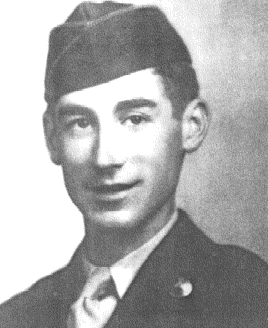A member of the United States Army Ranger Hall of Fame
The Second Ranger Battalion was divided on D-Day, Sergeant Clark was assigned to be in charge of the Aid Station and Company “medics” assigned to A & B Companies.
Upon landing at Omaha Dog Green Beach, both companies suffered heavy losses; Sergeant Clark, without hesitation, calmly, and with great presence of mind treated the wounded, one with an open pneumothorax (sucking chest wound), wherever they had fallen Most of the other medics already were either wounded-in-action or killed-in-action.
Later, while he was B Company’s aid man, the Company, ordered to protect the left flank of the 4th Division, moved into an enemy mine field, at night, directly in front of three enemy strong points. Three mines were detonated, killing two and wounding six, two seriously.
Immediately, he moved in, groping in the darkness to tend to the wounded and, eventually, remained all night with the seriously wounded in order to care for, and guard, them. Bill Clark displayed such courage and devotion to his duty and to fellow Rangers repeatedly during all the engagements of the Battalion.
Upon his return home Bill Clark became a police officer in Washington, D.C. After serving on both the vice and auto squads for some years he retired as Detective Sergeant. He died 16 February 1992 and is buried at Arlington National Cemetery.
The awards of the Silver Star, Purple Heart, with cluster, and Bronze Star, with cluster attest to the actions of William C. Clark, and his exemplification of a Ranger Medic.
Michael Robert Patterson was born in Arlington and is the son of a former officer of the US Army. So it was no wonder that sooner or later his interests drew him to American history and especially to American military history. Many of his articles can be found on renowned portals like the New York Times, Washingtonpost or Wikipedia.
Reviewed by: Michael Howard


